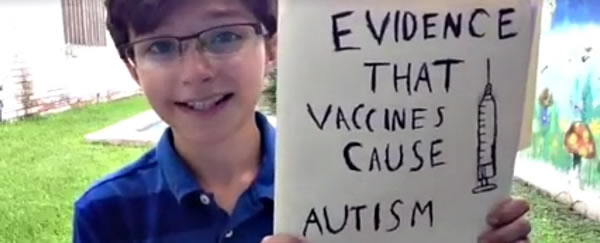
Credit Getty Images
When my wife, Courtney, and I were expecting our first child just a few years ago, I was astonished by the almost instantaneous community of expectant and new mothers that greeted her. Despite the fact that we’d just moved cross-country and didn’t yet know many people, she was flooded with sage advice and a deep sense of community.
It was impressive, and yet it often left me feeling like a bystander. As I watched the anticipation of these expectant mothers shift into weekly get-togethers with babies rolling around on blankets on the floor, I found myself envious and wondering: Where was the parallel universe of new dads?
Online, I found several hip publications on fatherhood — from the popular website Fatherly to Charlie Capen and Andy Herald’s widely read “How to Be a Dad,” and “Designer Daddy,” focused on “getting creative with fatherhood.” When our schedules aligned, my friend Peter and I would get vulnerable as we ran through the redwoods. We’ve had several unforgettable conversations about impossibly hard stuff like the loss of his first son and others on the pressure to strike that perfect balance with our wives — who both always seem to be one step ahead of us in this whole parenting thing. Yet nothing seemed to approximate the collective conversations that were happening among my wife and her new mom friends.
Economic and cultural shifts in the last decade have made fatherhood feel like uncharted territory in many ways. In the wake of the recession and the fracturing of the economy, many men, myself included, are less tied to a traditional workday as sole breadwinners. More than a third of American workers are now freelancers, according to an independent study commissioned by the Freelancers Union in 2014.
Many men are increasingly moving beyond the “bringing home the bacon” mentality, and instead prioritizing the careers of wives who make more money than they do. According to the Bureau of Labor Statistics, 28.2 percent of wives earned more than their husbands in 2014 (in families in which both wives and husbands have earnings). Back in 1987, when I was a kid, only 17.8 percent of American wives brought home more money than their husbands.
These trends are creating entirely new opportunities and challenges for fathers: finding ourselves engaged with aspects of caretaking that many of our own fathers never experienced, more distracted at work, or even less career-oriented in some cases, again, like mine. Men and women, in a sense, are at least getting closer to being equal partners in this journey; according to the latest Pew surveys on modern parenthood, 56 percent of mothers and now 50 percent of fathers say juggling work and family life is difficult for them.
After experiencing, often appreciating, and sometimes lamenting many of these dynamics for the first two years of our daughter’s life, I decided to try to bring some dads together to talk about our shared experience. I had a hunch that I wasn’t the only one yearning for a community and some deeper conversation on fatherhood.
I identified 28 relatively new fathers, mostly through my wife’s friends, and finally worked up the courage to invite them. A stream of responses to my email invitation came promptly and enthusiastically.
On a cool, Bay Area night, those two dozen eager dads (few of whom knew one another) showed up at our place with an enviable array of fancy cheeses, a homemade coffee cake, some Brussels sprouts smoked via some jury-rigged stovetop contraption, and no small amount of uncertainty about what the hell they were doing there. If all else failed, at least we wouldn’t starve.
Among us were both nonprofit and tech company workers, stay-at-home dads, a tattooed investment banker-turned-restaurateur, and a couple of writers, myself included. Most had one child; a few had two.
Nervously excited and visibly breaking a sweat, I explained my reason for bringing the group together: to give new fathers a chance to talk honestly about the highs and lows of their new identity, together.
Throughout our conversation, the mood in the room was fun and lively, but at other times it also felt almost sacred. Although there were many moments of group laughter, unlike so many typical gatherings of guys where there is often cross-talk and side jokes, only one person spoke at a time.
To get things started, I asked the group: “What has surprised you most about fatherhood?” (My wife, a skilled facilitator, had suggested it.) The answers were remarkably wide-ranging. “My own parents seem to care very little about my children,” one dad said. “Having a child has made me lose my career ambition,” said another.
For many of us, as much fun as it can be, being a father is all-consuming and omnipresent, blurring time and space like few other experiences. Some days, especially during those early sleepless nights, it’s hard to know which end is up. And yet these few hours of conversation every couple of months somehow manage to stay with me. I often find myself reflecting on things other fathers said in our groups, days, weeks or even months after the fact. Others have reported the same.
At the end of that first night, one of the other dads asked: “How often do you guys have conversations like this, with other guys? Once a week? Once a month? Once a year?” After the last prompt, finally a mass of hands started going up.
Guys like us, it turns out, are hungry for a place to talk with other men, particularly about how fatherhood is changing us, and changing writ large. Just as literature has long helped people see that our seemingly personal struggles are universal, being able to talk in this group offers a similar revelation. In an age of near-constant superficial virtual connection, there’s an enormous benefit in having a real life community to confide in more deeply and provide a genuine social network — especially for men and young fathers so often without it.
John Cary is the editor of “The Power of Pro Bono” and a strategist for TED.
Sign up for the Well Family newsletter to get the latest news on parenting, child health and relationships with advice from our experts to help every family live well.






